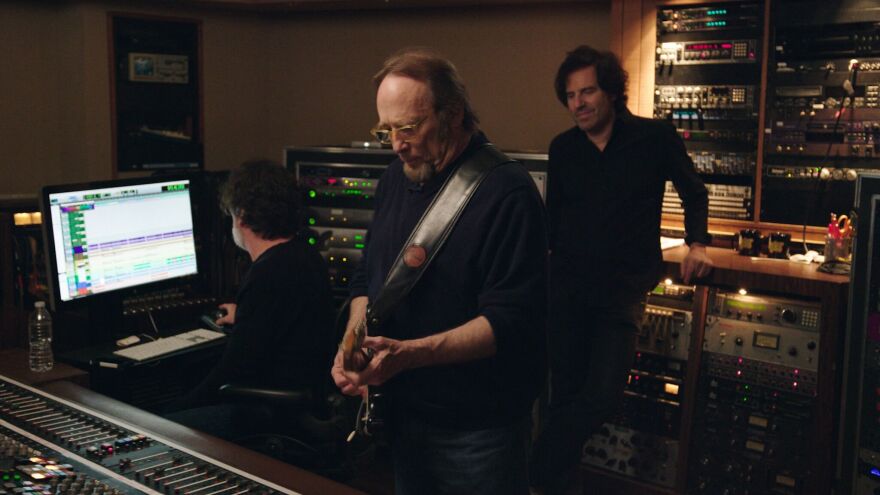Echo in the Canyon is a movie for white boys probably over the age of 50. Its subject is the legitimately fabulous concentration of folk-rock music that came out of Laurel Canyon in Los Angeles between about 1965 and 1967. It includes The Byrds, Buffalo Springfield, The Beach Boys and The Mamas and the Papas. For many people, listening to that music then and now can be a thrill. But the picture offers no perspective at all.
What organizes the film and probably got it made is the presence of Jakob Dylan as a kind of master of ceremonies/interviewer who seeks out the memory and achievement of that time and place. Dylan is the now 50-year old son of Nobel prizewinner Bob Dylan. That Dylan was not a Laurel Canyon figure, is not mentioned in the film, and does not appear in Echo in the Canyon.
Jakob Dylan wanders through the movie interviewing many who were Laurel Canyon figures – music producer Lou Adler, Roger McGuinn of The Byrds, Brian Wilson of The Beach Boys, Neil Young and Stephen Stills of Buffalo Springfield and Crosby, Stills, Nash and Young; Graham Nash, David Crosby, Jackson Browne, Eric Clapton. Dylan only interviews one woman, Michelle Phillips of The Mamas and the Papas, but she doesn’t get to say much about music; she gets to talk about her love life .
Surrounding the interviews are scenes of Dylan and younger musicians rehearsing the songs of the Laurel Canyon crowd with a few clips from a concert of those songs they presented in an L.A. theater. And then, from time to time, the movie cuts to Dylan and three of his musician friends in a showy Laurel Canyon house, leafing through LP album covers they seem to know little about, and making inane comments.
Nostalgia is not the same as memory or history; it’s a dull unquestioning longing for something in the past. If the music from Laurel Canyon matters to Jakob Dylan, it’s not obvious. He sings with a good voice, but not much excitement or urgency. More than that, he and first-time director Andrew Slater have made a picture with no direction to it. It’s unfocussed; it jumps around without much real coherence. All through the movie I wondered why Dylan and Slater are doing this exercise. What do they want out of it?
The children of very famous people often have a hard time stepping out and doing something dynamic on their own. I’m no shrink, but it looks like Jakob Dylan has a case of famous father disease.
Echo in the Canyon begs for some forceful questioning from its makers. Dylan says in the movie that he thinks those songs are important now – so why does he work so diligently to imitate those songs instead of bringing a 2019 perspective to them. Why do Cat Power, Regina Spektor and Beck perform so passively – and why are the potent Norah Jones and Fiona Apple acting like pushovers when the real tribute they might pay to the songs of Laurel Canyon in the 1960s would be to reimagine them.
More than that, why don’t these filmmakers, with their enlightened 2019 perspective, acknowledge that women helped make the music at the time -- Carole King, for instance – and that women might actually talk in the film about that music. In 1970, Joni Mitchell even made an album about them called “Ladies of the Canyon.”
With real myopia, the film ignores the influence of African-American music. The folk-rock of Laurel Canyon was made by white musicians, but neither folk nor rock could exist without black music. The Beatles, The Rolling Stones and Eric Clapton, among others brag about that influence. In Echo in the Canyon Chuck Berry is mentioned once. That’s a failure of history and memory – and even of empty nostalgia. Echo in the Canyon is like a movie about the 1960s from the sanitized viewpoint of the 1950s.






